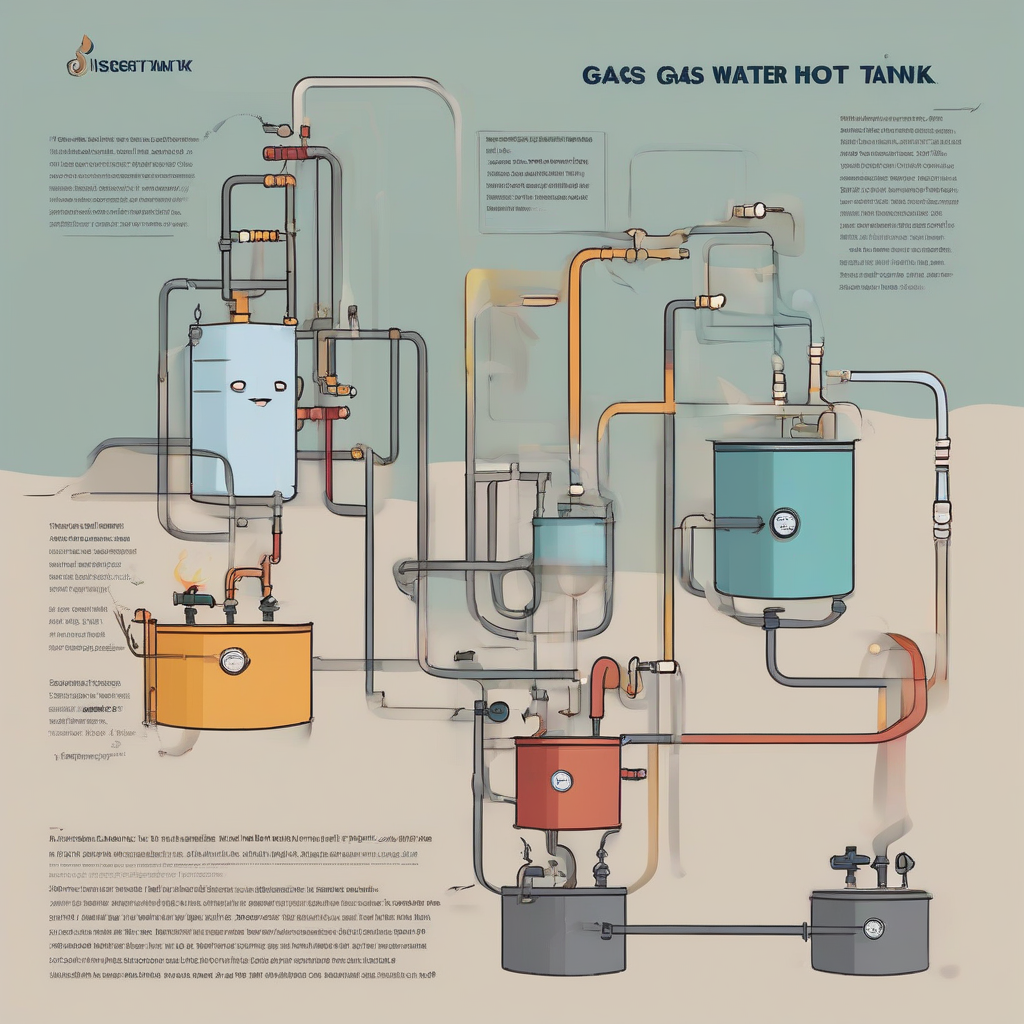Unveiling the Longevity of Your Gas Water Heater: A Comprehensive Guide to Lifespan and Factors Affecting it
The humble gas water heater, a workhorse in countless homes, quietly provides a constant stream of hot water. But how long can you rely on this unsung hero before it needs replacing? The lifespan of a gas water heater isn’t a fixed number; it’s a variable influenced by numerous factors. Understanding these factors is key to maximizing your heater’s life and avoiding costly, unexpected repairs.
Average Lifespan of a Gas Water Heater
Generally, a gas water heater is expected to last between 8 and 12 years. However, this is just an average. Some heaters might function flawlessly for over 15 years, while others might require replacement within 5 years. Several variables contribute to this wide range.
Factors Affecting Lifespan:
- Water Quality: Hard water, rich in minerals like calcium and magnesium, leads to mineral buildup inside the tank. This sediment insulates the heating element, reducing efficiency and eventually causing premature failure. Regular flushing can mitigate this issue, but severe mineral deposits can still significantly shorten lifespan.
- Water Pressure: Consistently high water pressure puts extra stress on the tank, increasing the risk of leaks and premature corrosion. Pressure-reducing valves can help protect your heater.
- Usage Frequency and Intensity: A water heater in constant use will naturally wear out faster than one used less frequently. Families with multiple people showering or doing laundry regularly will put more strain on the appliance.
- Maintenance and Inspection: Regular maintenance, including annual inspections and flushing, significantly extends the lifespan. A professional inspection can identify potential issues early on, allowing for preventative measures before a major failure occurs. Neglecting maintenance invites premature breakdown.
- Anode Rod Condition: The anode rod is a sacrificial metal component that attracts corrosive elements, protecting the tank from rust. Over time, the anode rod will corrode and needs replacement. A worn-out anode rod accelerates tank corrosion, significantly reducing lifespan.
- Temperature Settings: Running your water heater at excessively high temperatures increases the risk of corrosion and scaling, reducing its lifespan. Maintaining a moderate temperature setting (around 120°F) is optimal.
- Quality of the Water Heater: The initial quality of the water heater itself plays a crucial role. Higher-end models, often made with thicker tank walls and better components, generally last longer than budget-friendly options. Investing in a higher-quality heater might seem expensive initially, but it can pay off in the long run through extended lifespan and reduced repair costs.
- Installation Quality: Improper installation can contribute to premature failure. A poorly installed heater is more prone to leaks and other issues. Always use a qualified and experienced plumber for installation.
- Corrosion: This is a leading cause of water heater failure. Corrosion can be internal, due to water quality and temperature, or external, due to environmental factors like humidity.
- Sediment Buildup: As mentioned earlier, sediment accumulation reduces efficiency and can eventually lead to tank rupture.
Signs Your Gas Water Heater Needs Replacing:
Recognizing the warning signs of a failing water heater can prevent unexpected hot water outages and potentially costly damage.
- Leaks: Any visible leaks around the tank, pipes, or fittings are a major red flag requiring immediate attention.
- Rust or Corrosion: Visible rust or corrosion on the tank’s exterior is indicative of internal deterioration.
- Reduced Hot Water: If you’re consistently running out of hot water before the tank has had a chance to reheat, it’s a sign of reduced capacity or diminished efficiency.
- Strange Noises: Popping, banging, or rumbling noises from the tank are often indicators of sediment buildup or internal component failure.
- Increased Energy Bills: A significant increase in your gas bill without a change in usage patterns suggests your water heater is becoming less efficient.
- Pilot Light Issues: Repeated problems with the pilot light could signify a malfunctioning gas control valve or other internal issues.
- Cloudy or Discolored Water: This could indicate rust or sediment particles are entering the water supply from the tank.
- Age of the Water Heater: If your water heater is nearing or exceeding its expected lifespan, proactive replacement is wise to avoid unexpected breakdowns.
Extending the Life of Your Gas Water Heater:
While you can’t completely control factors like water quality, you can take proactive steps to maximize your water heater’s lifespan.
- Regular Flushing: Flush the tank annually to remove sediment buildup. This can often be done yourself, but professional service is advisable if you’re unsure.
- Anode Rod Replacement: Replace the anode rod every few years, as recommended by the manufacturer. This significantly extends the tank’s life by protecting it from corrosion.
- Regular Inspection: Schedule an annual inspection by a qualified plumber to identify potential issues before they escalate.
- Maintain Proper Water Temperature: Avoid setting the temperature too high, which increases corrosion and scaling.
- Address Leaks Promptly: Repair any leaks as soon as they’re discovered to prevent further damage.
- Consider a Water Softener: If you have hard water, a water softener can significantly reduce mineral buildup in your water heater.
- Insulate Hot Water Pipes: Insulating hot water pipes reduces heat loss, improving efficiency and reducing strain on the water heater.
Choosing a Replacement Water Heater:
When the time comes to replace your gas water heater, several factors influence your choice.
- Tank Size: Choose a tank size that appropriately meets your household’s hot water needs.
- Energy Efficiency: Look for Energy Star certified models for better energy savings.
- Features: Consider features like digital displays, vacation mode, and self-diagnostic capabilities.
- Warranty: Choose a model with a comprehensive warranty for added peace of mind.
- Budget: Set a realistic budget and compare prices from different suppliers.
- Professional Installation: Always have a qualified plumber install your new water heater to ensure proper functionality and safety.
Conclusion (Not included as per instructions)
